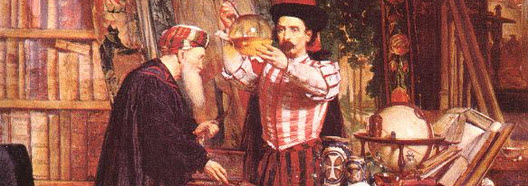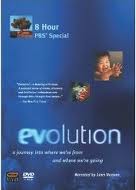PBS Evolution
Student Worksheets
PBS Evolution is a 7-part documentary series that gives a full primer on evolution, including the history of the theory, evidence behind it, and how it applies to a wide variety of biological concepts.
- Darwin's Dangerous Idea follows Charles Darwin's life history as he researches, develops, and eventually publishes his theory of natural selection.
- Great Transformations examines some of the evidence that links seemingly dissimilar species to each other.
- Extinction! looks at the history of extinction on Earth, and whether the current rates of extinction are partially due to human influences.
- The Evolutionary Arms Race uses a case study of tuberculosis to show a modern-day example of evolution in action, and how it affects human health.
- Why Sex? compares the evolutionary advantages of sexual and asexual reproduction, and gives some insight to how it may influence current human behaviors.
- The Mind's Big Bang presents the human brain as an example of an evolved adaptation.
- What About God? examines the ongoing debate between biologists and creationists -- those who take a literal interpretation of the Bible as fact.
Evolution is one of the most important theories in biology -- it gives meaning and context to the characteristics of all living things, from single-celled bacteria to multicellular animals and plants. As a theory, it is also very broad, covering a lot of ground and a lot of evidence. This documentary series by PBS helps to highlight some of the important implications of the theory, and the current research surrounding it.
Darwin's Dangerous Idea
Episode Summary: This is the longest of the PBS Evolution segments, clocking in at 2 hours. Key moments of Charles Darwin's life and research are re-enacted, to give students insight into how his theories emerged. Mixed in with these segments are modern case studies of natural selection, such as the evolution of the eye and the fight against the ever-changing AIDS virus.
Key Concepts: Charles Darwin, HMS Beagle, Galapagos islands, phylogenetic tree, divergent speciation, natural selection, artificial selection, AIDS, mutations, drug resistance, Origin of Species
Great Transformations
Episode Summary: One of the most difficult concepts to grasp in learning about evolution is the notion of speciation -- the emergence of new species from an ancestor. This episode gives some compelling examples and evidence of speciation, particularly revolving around how animals first emerged onto land, and in the case of whales, returned back to the sea.
Key Concepts: Natural selection, adaptations, divergent speciation, mammal evolution, transitional forms, fossils, vestigial structures, Cambrian explosion, embryology, DNA, mutations, bipedalism, quadrupedalism.
Extinction!
Episode Summary: Extinctions are a normal aspect of evolution. It is estimated that 9 in 10 species that have ever existed have gone extinct. There have been several huge extinction events in the Earth's history, sparked by cataclysmic events such as meteor strikes. However, there is a growing concern that we are in the midst of the next great extinction event -- caused by human activity. The exact causes vary, from hunting to the introduction of invasive species, but the result is a decrease in the biodiversity within the remaining ecosystems.
Key Concepts: Geologic strata, Permian extinction, food webs, food chains, Triassic, dinosaur extinction, invasive species, poeaching, biodiversity, interdependence.
The Evolutionary Arms Race
Episode Summary: Evolution is often described as a race between predators and prey, parasites and hosts. As one species evolves new adaptations to protect themselves and avoid predation, another species evolves to become more effective hunters. This also applies to microorganisms that cause disease. In fact, bacteria can evolve much faster than larger species can, leading to the rapid emergence of drug resistance. This episode uses the study of multi-drug resistant tuberculosis to see this arms race in action.
Key Concepts: Predation, adaptations, antibiotic resistance, drug resistance, mutations, bacteria, tuberculosis, symbiosis, mutualism.
Why Sex?
Episode Summary: One of the most important engines of evolutionary change is sexual reproduction. Most organisms on Earth reproduce sexually, in spite of the time and effort involved in finding a suitable mate. Sexual selection is the root cause behind much of the extravagence seen in nature, particularly with birds, and may even have played a role in the development of certain aspects of human behavior.
Key Concepts: Asexual reproduction, sexual reproduction, clones, sexual selection, evolutionary psychology, behavioral adaptations.
The Mind's Big Bang
Episode Summary: One of the greatest mysteries of evolution is the emergence of the human brain -- with its capacity for teaching, learning, complex language, and creativity. This episode looks at some of the early hominids, including Cro-Magnons and Neanderthals, their physical and social differences, and examines what seperated them; what caused one group of to go extinct, while the other went on to create the incredible technological advances we have today.
Key Concepts: Hominids, Cro-Magnon, Paleolithic, Neanderthals, Homo sapiens


